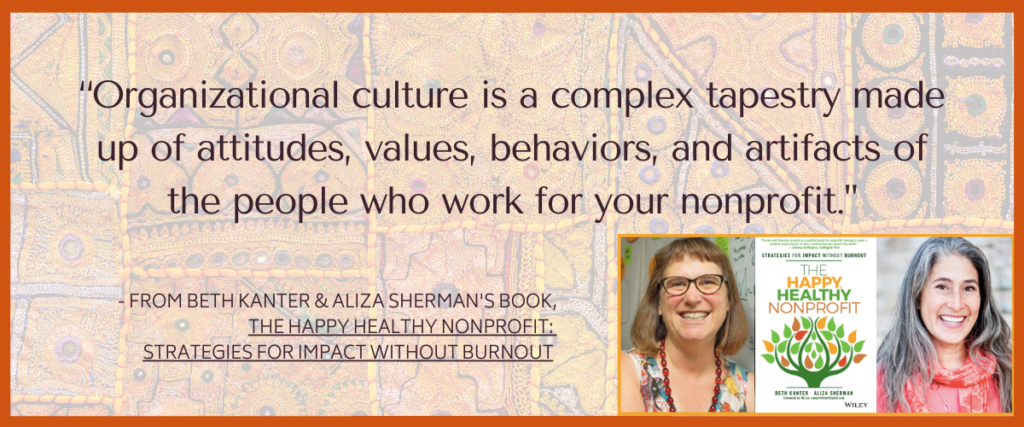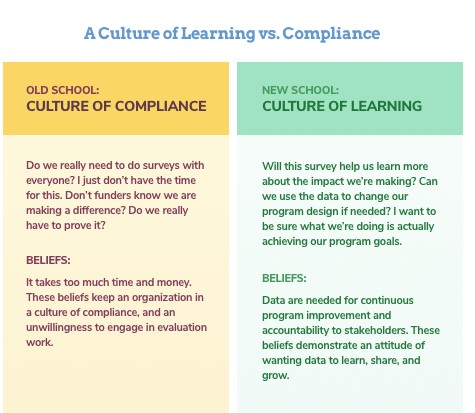September 9th, 2021

The intersection of program evaluation and organizational culture is critical to understand. Organizational culture relates to program evaluation in a very direct way: values and attitudes drive behaviors that make up the culture of your organization, and the way your staff feel and think about evaluation will ultimately dictate their behaviors and attitude towards the work of program evaluation itself.
Beth Kanter and Aliza Sherman provide this clear and definition of organizational culture in their book the Happy Healthy Nonprofit: Strategies for Impact without Burnout:
“Organizational culture is a complex tapestry made up of attitudes, values, behaviors, and artifacts of the people who work for your nonprofit.”
Think about this: are your staff doing evaluation because of a required mandate from funders or because of an actual desire to learn from the insights the data provides, and a desire to apply those learnings for continuous program improvement?
The former is more of a culture of compliance, and the latter is more a culture of learning.
As you read through the summarized image below that presents these two different cultures, ask yourself the following questions where does YOUR staff currently fall?

Even though every organization tends to have a wide range of attitudes toward program evaluation, from those who are enthused to those who are resistant, it’s unfortunately all too common for many organizations to be stuck in the yellow side of this image: a culture of compliance.
The natural next question I’m sure you have is this: “Chari, is it possible to help my team members make the shift from a culture of compliance a culture of learning? How?!”
I have good news for you – yes, a culture shift is possible!
Here are 3 steps to begin this shift from compliance to learning culture at your organization:
This blog post is a summary excerpt from my book Nonprofit Program Evaluation Made Simple: Get your Data. Show your Impact. Improve your Programs. Check out Chapter 4, Building a Culture of Evaluation, for more tips to help your organization learn to embrace program evaluation. Bonus: every book comes with free access to a companion website that is full of downloadable templates you can use right away – look for access instructions in the book’s Introduction. Get your copy now on Amazon or at Barnes & Noble!
Upcoming Events
Live Virtual Workshop:
Program Evaluation Made Simple
Thursday, October 21 | 9:00 a.m. – 10:15 a.m. Pacific
Event Info
Chari accurately captured the fundamental goals and mission of our organization and transformed our input into a clear evaluation process that helps us assess the impact of our programs on the lives of the families that we serve. Now we have an amazing way to measure the physical, emotional, and mental effects of our programs and to guide change, ensuring that we are delivering services in the most effective way possible.
Brandi Tuck, Executive Director, Portland Homeless Family Solutions
Get periodic emails with useful evaluation resources and industry updates.
We promise not to spam you!